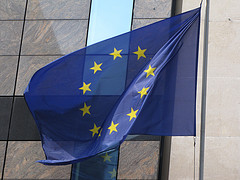In 2014, 300 million eligible voters across the European Union (EU) will have the opportunity to cast their vote in the elections for the second-largest legislative body in the world: the European Parliament. Currently at 766 members, in the new legislative period, the Parliament will have 751 members who according to the Treaty on European Union (TEU) directly represent the European citizens. And this election is bound to be different—if it is up to Members of European Parliament (MEP) that is. The EP, together with the Commission, is making a huge effort to politicise the process and make the 2014 elections truly European. Although commendable, these efforts are not without problems: in some ways, they stretch the limits of the EU treaties to worrying degrees and risk creating a dysfunctional decision-making context after the elections.
In spite of its considerable (and increasing) powers under the Treaties, the Parliament has since the first election faced decreasing turnouts. In the latest 2009 elections, the average was 43 per cent across the EU-27. Efforts are being made to address this problem. In July 2013, a resolution by MEP Andrew Duff included a wide range of measures to improve turnout, the most important of which is the proposal to have Commission candidates of the EP political groups. In September, the Parliament launched the elections information campaign, with the motto “act, react, impact”, and complemented with a cinematic video (click here to watch) that seems to come straight from one of the major Hollywood production companies.
In addition, in a speech last month, Commissioner Viviane Reding proposed that Commission President Herman van Rompuy should play the role of a political mediator, a “go-between” between the European Council and the largest parliamentary groups. Hers is a vision of a true parliamentary system on the EU level. At the latest General Affairs Council Meeting (GAC), Foreign Affairs Ministers and Secretaries further discussed the European Electionsand ways of improving cooperation between the EP and the Council. The largest effort so far to improve turnout and citizen involvement in the elections of 2014 however comes from the Parliament itself.
This is where the Parliament’s position becomes problematic. According to the treaties, the Council appoints the President of the Commission, who subsequently presents a team of Commissioners for approval to the Council and the EP. Put bluntly, the EP as a whole may subsequently send home the entire Commission if it so desires. Quite simply, the Council has the right of initiative in this matter, and the Parliament, by ignoring this, is in fact challenging the constitutional (for want of a better word) balance of power in the Union. Question is: will the Council accept it? And if not, what will be the consequence?
Another problem with the Parliament’s stance is that it stands to further politicise the Commission. The new Commission President, if indeed drawn from among the Parliament’s ranks, will be directly linked to the majority political group in the EP. This means that the appointment of Commissioners for which she or he is responsible, will also be of a political nature. This challenges the Commission’s historical position as an “honest broker”—a position that has already come under some considerable strain as the institution has come under increasing pressure from the European Council, and from the more activist EP. Can the member states deal with such a politicised institution, especially if a member state government is of a different political colour than the Commission?
There is also a more long-term strategic problem that needs to be considered: the binary nature of democratic legitimacy in the Union. Essentially, democratic accountability in the EU is ensured through two main channels: on the one hand, the elected government leaders in the Council and national parliaments; and on the other, the directly elected European Parliament. Over the past two decades, the member states have consistently chosen to boost the latter’s role in the decision-making process to address the problem of the democratic deficit. Off late however, we see a counter-trend, as member states seek to strengthen their role through the European Council, and as national parliaments themselves become better organised in their attempts to control the EU decision-making process. In terms of the latter, coordination mechanisms such as COSAC, and institutional innovations such as the yellow and orange card procedures come to mind.
It stands to reason that the EP’s latest attempts to boost its image and stature among European citizens is at odds with these latest developments, and it is not entirely clear at this point how national parliaments and governments can accommodate this tension.
In spite of these problems, the EP has done well to try to present a clearer image to European Citizens—fact of the matter is that the European Parliament matters. Since the 2009 Treaty of Lisbon, around ninety per cent of today’s EU legislation passed through the European Parliament, which, in turn, represents anywhere between forty and sixty per cent of legislation in member states, according to different estimates. Who is going to be in the Parliament, and what their political colour is, is thus going to fundamentally affect the legislation that comes out of the EU system and will have a direct impact on 500 million European citizens. In 2014, citizens do have a choice, and the composition of the Parliament will matter. Both the EP and national governments would do well to emphasise this point.
This post originally appeared on EUSpeak.









No Comment